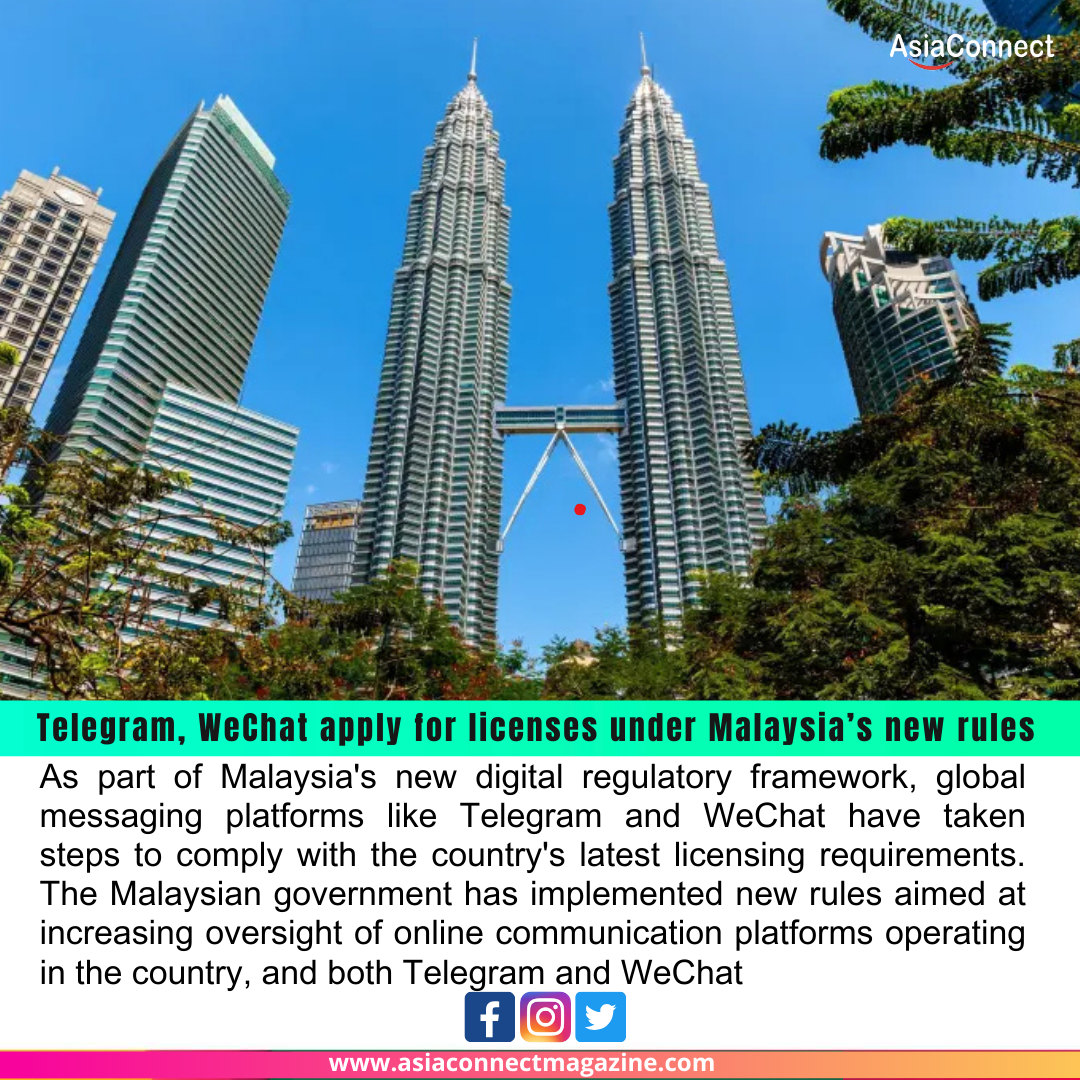As part of Malaysia’s new digital regulatory framework, global messaging platforms like Telegram and WeChat have taken steps to comply with the country’s latest licensing requirements. The Malaysian government has implemented new rules aimed at increasing oversight of online communication platforms operating in the country, and both Telegram and WeChat have applied for the necessary licenses before the looming deadline of December 31. This move signals the companies’ commitment to adhering to Malaysia’s evolving digital policies, as non-compliance could lead to significant consequences, including the potential suspension of services.
The new regulations, introduced by Malaysia’s Communications and Multimedia Commission (MCMC), require messaging platforms that meet certain criteria to obtain a license to operate within the country. These rules are part of the government’s broader efforts to regulate and monitor digital platforms more effectively, focusing on issues such as cybersecurity, content moderation, and user data privacy. The licensing system applies to foreign companies that offer services to Malaysian users and aims to bring a more structured approach to the management of digital platforms.
Telegram, which has seen a rapid rise in popularity globally, especially after facing bans in several countries, has submitted its application to operate under the new framework. Known for its emphasis on privacy and security, Telegram has become a popular choice for users who are cautious about data collection practices of more mainstream platforms. The app boasts millions of users in Malaysia, and by applying for the necessary license, Telegram aims to continue offering its services without disruption.
Similarly, WeChat, the ubiquitous messaging app in China, has also sought to meet Malaysia’s licensing requirements. WeChat’s extensive user base in Malaysia, especially among the Chinese-speaking population, means it plays a significant role in both personal communication and business transactions. As a result, WeChat is keen to ensure it maintains access to the Malaysian market by complying with the new regulatory framework. This move is especially crucial for the app, as Malaysia is one of the key Southeast Asian markets where it operates outside of China.
The Malaysian government’s push for digital regulation has sparked concerns among some companies regarding the level of control the authorities may exert over online content. The new rules, which are part of the Communications and Multimedia (Amendment) Act, require companies to establish mechanisms for content monitoring and to provide user data to authorities if requested. While the government argues that these measures are necessary to combat the spread of harmful content and ensure national security, critics worry that they could infringe on user privacy and freedom of expression.
Telegram and WeChat, however, seem to have opted for compliance rather than risk the consequences of non-compliance. These consequences could include hefty fines, the suspension of services, or even being banned from operating in Malaysia. The deadline for submitting applications is December 31, and companies that fail to meet this requirement will likely face severe repercussions. This has created a sense of urgency among tech companies that provide online messaging services, prompting them to quickly align their operations with the new licensing conditions.
The situation also reflects a broader trend in Southeast Asia, where governments are increasingly looking to regulate tech companies, particularly those that operate globally but have substantial local user bases. These moves are part of a larger push to assert control over the digital economy, particularly as concerns over data security, online extremism, and misinformation continue to grow.
In conclusion, the applications by Telegram and WeChat for licenses under Malaysia’s new digital rules mark a significant step in the country’s effort to regulate the digital landscape. With the December 31 deadline fast approaching, these platforms are acting swiftly to ensure they can continue to operate in the Malaysian market without disruption. The move also highlights the increasing global trend toward digital regulation and the need for companies to navigate a complex regulatory environment to maintain access to important markets.





